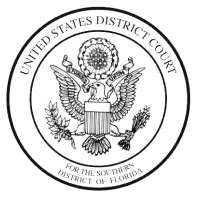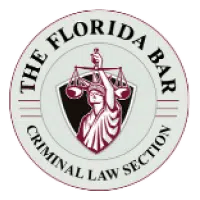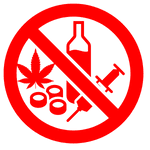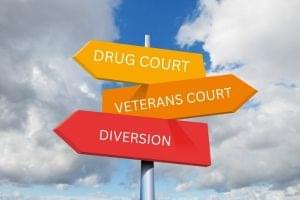CRIMINAL DEFENSE ATTORNEY
Serving Broward, Miami-Dade, Palm Beach Counties, and South Florida
Facing A Misdemeanor or Felony Criminal Charge?
I’m Ready to DEFEND YOU
Know Your Legal Rights and Options!



CRIMINAL DEFENSE ATTORNEY SERVING BROWARD, MIAMI-DADE, PALM BEACH COUNTIES & SOUTH FLORIDA
If you’re facing criminal charges, you need an experienced criminal defense lawyer on your side to protect your rights, fight for your freedom, and get the best possible outcome!
Attorney Michael McDonald tirelessly fights for his clients at every step. As an experienced trial lawyer, he has represented clients for misdemeanors and serious, complex felonies. READ MORE…

GET REPRESENTATION FOR

VIOLENT CRIMES
Attempted Murder, robbery, Armed Robbery, Home Invasion, aggravated battery, aggravated assault, kidnapping, arson,

THEFT & ECONOMIC CRIMES
Racketeer Influenced and Corrupt Organizations Act) RICO, Grand Theft, Fraud
CIVIL MATTERS
Traffic Violations

PROBATION VIOLATIONS
Misdemeanor or Felony probation violations are very serious, and may result in jail or prison time

SEXUAL OFFENSES
Sexual assault, battery, rape, indecent exposure, sex trafficking, sexual misconduct, child exploitation, solicitation, lewd or lascivious acts, prostitution, sexual civil commitment (Jimmy Rice)

WEAPON & GUN CRIMES
Armed burglary, Armed Robbery, Armed Assault, Airport and Security Violations

DRIVING RELATED OFFENSES
DUI (Driving Under the Influence), DWLS (Driving With a Suspended License), Criminal Traffic Violations, Leaving the Scene of an Accident

MISDEMEANORS
Assault and Battery, Domestic Violence, Petit Theft-Shoplifting, Trespassing, Disorderly Conduct

CONTROLLED SUBSTANCE CHARGE
Possession of any controlled substance including cannabis, cocaine, heroin, psychedelics, barbiturates, opioids, and any other scheduled substances
STRATEGIES FOR YOUR BEST OUTCOME

Early Strategy Formation
» Importance of early strategic planning for your case
Case-Specific Considerations
» Acknowledgment that outcomes can vary greatly due to the specific circumstances of your case, including facts, the judge, prosecutor, victim(s), and witnesses.


Possibilities for Case Dismissal
Inquiry into the potential for case dismissal due to:
Trial Outcomes
Understanding the possible consequences and outcomes if your case proceeds to trial.


Alternatives to Trial
Exploration of resolutions without going to trial, such as:
Mental Health Court
Under certain circumstances, clients with mental health issues may qualify for mental health court, providing it is available in their county. This can be advantageous to clients and may lead to charges being dismissed. Michael has extensive experience with mental health issues, psychologist, mental health court, and civil commitment.


Veteran's Court
Some counties recognize the specific challenges to our Veterans and have created Veterans Court to address those needs. If accepted, the program often includes supervision, mental health counseling or programs and may result in the dismissal of the charge. Certain charges may disqualify a veteran from the program.
ABOUT MICHAEL McDONALD
>> Serving Broward, Miami-Dade, Palm Beach Counties, and South Florida
Michael is a military veteran and a dedicated attorney for more than 20 years. He tirelessly fights for his clients at every step.
You deserve an experienced, committed, and respected professional to represent you.
- Experienced trial lawyer in Ft. Lauderdale, Florida
- Represents clients for misdemeanors as well as serious, complex felonies
- Compasionate, committed, and respected professional
FAQ's
When should I hire an attorney?
As soon as possible! If you’ve been arrested or found out you’re being investigated for a crime, it’s crucial to reach out to an attorney right away. An experienced attorney will defend your constitutional rights and might stop you from accidentally giving evidence against yourself. This quick action could make all the difference in whether you end up facing charges or not.
What results can I expect?
Bottom line, a criminal defense attorney cannot guarantee the outcome of any criminal case. However, we’re dedicated to defending your rights. We do this by listening to you, talking to witnesses, police officers, prosecutors, as well as filing and arguing motions, and conducting investigations and research. Our goal is to reduce or dismiss your charges. I have successfully fought and won trials on cases ranging from simple misdemeanors to serious felonies.
What about a plea bargain?
Talk to an attorney! You want to know what the law is and what your consequences will be so you can make an informed decision. Is the plea offer good enough to minimize its impact on your life or will it be something that haunts you for the rest of your life? Will it stop you from future job opportunities or potentially expose you to prison time if you fail to meet your probation requirements? The State may try to scare you with pressure tactics, but with and experienced attorney by your side, you’ll know your options and make the best decision for your situation. Should you go to trial or consider a plea? Let’s discuss your options.
I want to plead guilty. How can an attorney help?
Even if you’re considering pleading guilty, having an attorney by your side can make a big difference. They can work to minimize the consequences of your conviction or negotiate to reduce the charges against you. Your attorney can also guide you on the best course of action, helping you avoid decisions you might regret later on.
Why not use a public defender?
Assistant public defenders are vital to the criminal justice system, but they often have a heavy caseload which can limit the time and attention they can give to your case. A private attorney can dedicate more time and attention to your specific situation, giving thorough care and attention to detail. This personalized approach can make a big difference, particularly in complex cases.
What is my “right to remain silent” when I’m arrested?
This is a critical point of your case. Once you have been placed under arrest, your Miranda Rights come into play, which may protect you, if you choose to use them. You have the right to remain silent! Typically, you should remain silent until you have spoken to an attorney who can advise and represent you. Be polite to the officers but insist that you want to speak with your attorney first. This ensures that you will not provide evidence against yourself. Often, the strongest evidence against individuals comes from statements made to officers without the presence of an attorney.
What is “probable cause”?
Probable cause is the legal basis that police officers need before they can search you or your belongings. For example, if an officer sees or smells something, like marijuana, they have probable cause to search you. But if officers search or arrest you without a valid reason, any evidence they find can’t be used in court because it wasn’t obtained legally.
Do I have to allow police officers into my home?
No, you don’t have to let them in unless they have a valid search warrant. Your home and property are protected by the Fourth Amendment, which safeguards against unlawful search and seizure. If a police officer enters your home without a warrant from a judge, any evidence they collect cannot be used in court.
When is a person considered to be under arrest?
Typically, when a person is no longer free to leave the presence of a police officer, they’re considered to be under arrest. Usually, a person will be restrained in some form; handcuffed, placed in a squad car or held physically. But it may be in other ways that you may not think of. Again, it is critical that they ask for an attorney and exercise their right to remain silent and not provide evidence against themselves.
What should I do if I learn that I am under investigation for a crime?
You should strongly consider getting a criminal defense attorney to help you immediately. You are under no obligation to speak with investigators, regardless of what they might say. Exercise your right to remain silent. Your attorney can speak with the investigators on your behalf ensuring that you do not provide any evidence against yourself. Often, without knowing it, people accidentally say things that drag them into trouble or provide evidence for their own arrest.
Will the military know about my arrest?
Yes, the military reviews arrest records and booking logs. Typically, the military will let the civilian court handle the issue, however, the military may take its own form of disciplinary action against you. It is highly advisable that you retain an attorney as soon as you possible to guide you through any potential consequences.
